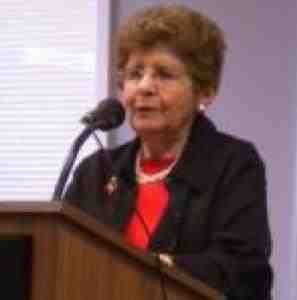|
Will YOU LOOK ON? Will you stand by while your disabled neighbour is taken away? Stand up for your neighbour: You may be next.
|
|
 By Alex Katz – Globe Correspondent / August 16, 2010 BROOKLINE — As she has many times before,Rena Finder recalled the day her family and thousands of others were forced from their homes and herded into the Jewish ghetto in Krakow, Poland. What struck her most about that day was not the sight of Nazi soldiers It was the silence from the neighbours who looked on, sitting at their windows as they watched the beginning of genocide unfold through the curtains: “The feeling of abandonment was so strong,’’ said Finder, 81, during a seminar aimed at helping local Catholic school teachers examine how the choices made by ordinary citizens in the 1920s and 1930s ultimately led to the murder of millions. The seminar is part of a three-year initiative spearheaded by the Archdiocese of Boston and the non-profit group Facing History and Ourselves to provide educational development courses for Catholic school teachers on a range of social justice issues and their historical application to Catholic education. Several anonymous Catholic donors are funding the initiative.This year’s seminar focuses on the Holocaust, cantering on its history and the profound moral questions it raises. “We’re hoping to bring to light these issues and see how they’re central to Catholic teachings, how religious institutions need to play a role in social justice,’’ said William Mockeries, associate superintendent for academic excellence for the archdiocese. The Catholic Church has long been criticized by some for being silent during the rise of Nazism in Europe. The controversy most often surrounds the role played by Pope Pius XII, whose papacy began at the outset of World War II. In some accounts, he privately sheltered hundreds of thousands of Jews and has been praised for the wisdom of his diplomacy. But many decried his public silence about what was happening to the Jews. Ely Wisely believes the pope failed miserably.“Even when they were persecuting the Jews of Rome under the windows of the Vatican, he did nothing to protest,’’ Wisely, a Holocaust survivor and a Nobel laureate, said in an interview. The 81-year-old Wisely has been an outspoken critic of the Catholic Church’s wartime response to Jewish victimization since he gained fame for his book “Night,’’ which chronicles his experience as a young Orthodox Jew in the Nazi concentration camps at Auschwitz and Buchenwald. Yet, he said that one of the most profound responses to “Night’’ he received came from Catholic theologians, who told him the book had a powerful effect on their religious outlook. He also credits today’s Catholic Church for its strong stance on fighting discrimination through education, as evidenced by the Boston Archdiocese’s efforts. “I just hope that they will be honest with themselves and tell the truth,’’ he said. “Parts of it are dark; other parts are not.’’Those other parts Wiesel spoke of include the more than 23,000 non-Jews recognized by Israel’s official Holocaust memorial as Righteous Gentiles: those who risked their own lives to save Jews from Nazi extermination. One is Oskar Schindler, the Catholic industrialist, an ethnic German born in the Austrian empire who clandestinely spared Finder and 1,200 other Jews from death by plucking them from Nazi concentration camps and putting them to work in the factory he owned in Poland. “We all adored him,’’ Finder said of Schindler. “When he came into the factory, it was like the sun was shining.’’ In addition to Schindler, thousands of other Catholic Poles saved scores of Jewish lives by helping to smuggle them out of Nazi-occupiedPoland, where nearly 3 million Jews died, she said. “There were so many locals on the ground, nuns, priests, monks, deeply religious Catholic lay people who dedicated themselves to saving Jewish neighbours and even Jewish strangers,’’ said Debórah Dwork, director of Clark University’s Strassler Center for Holocaust and Genocide Studies. Dwork, a leading critic of the Catholic Church’s inaction on behalf of Jews during the Holocaust, said she applauds the efforts of the Archdiocese and Facing History to confront the issue. The seminar’s participants said they plan to teach about the Catholic Church’s controversial past in an open and honest way and to address the crucial role individual decision-making plays in a democratic society. Doc Miller, senior associate for staff development at Facing History who taught social studies for 23 years at Concord Middle School, said it is a topic educators cannot afford to gloss over. “This isn’t about trying to pin blame on anyone,’’ he said. “The focus is to look at a whole range of human behaviour and ask what we can learn from it.’’ Alex Katz can be reached at akatz@globe.com. © Copyright 2010 Globe Newspaper Company. |
|
3 thoughts on “It was the silence from the neighbours who looked on”
Leave a Reply
You must be logged in to post a comment.

I suggest in Britain after 20 years of “scrounger” propaganda, a disabled person being dragged out of their home by the authorities, would get a round of applause from neighbours, not silence.
I dont know about a round of applause, I think the neighbours probably wouldn’t intervene. However, if police dragged away members of parliament, I doubt it their peers or neighbours would intervene either.
I’d like to think I would speak up and support someone in those circumstances , and vice versa .we all need to look out for each other I’m sure before long ppl whom have left paying bedroom tax will be evicted we all must stand as one unit strong and believe we can change things .